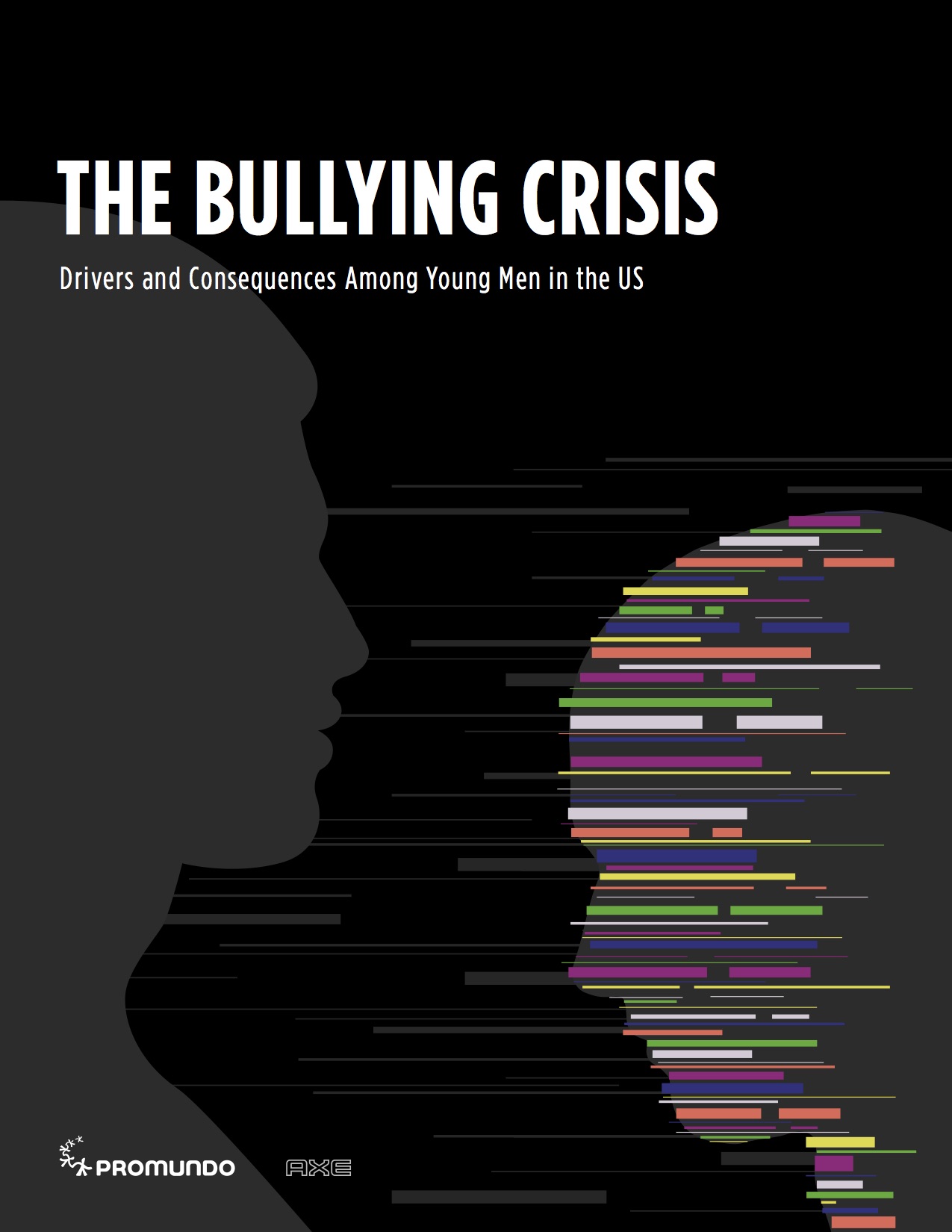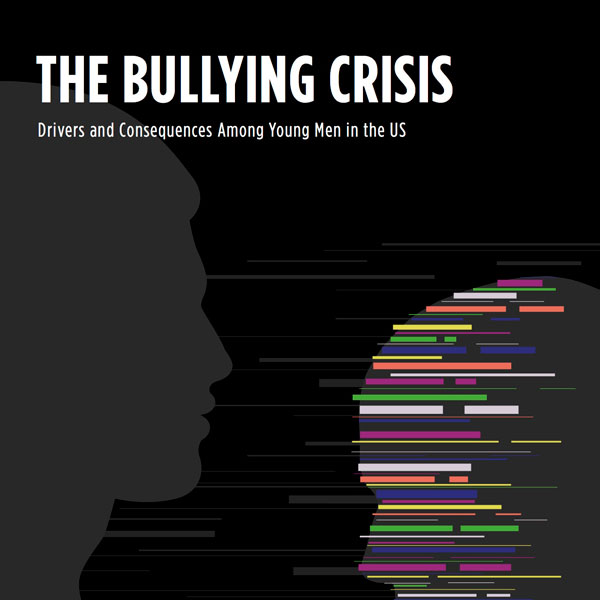 Equimundo and Axe, Unilever’s leading male grooming brand, launched The Bullying Crisis – a new study on how young men in the United States use, experience, witness, and intervene in bullying – on June 13 at Social Media Week 2018 in Los Angeles, California.
Equimundo and Axe, Unilever’s leading male grooming brand, launched The Bullying Crisis – a new study on how young men in the United States use, experience, witness, and intervene in bullying – on June 13 at Social Media Week 2018 in Los Angeles, California.
Equimundo presented the report alongside representatives from Ditch the Label and Axe, on a panel titled “From Fake Friends to Flaming: A #NoFilter Discussion on the State of Cyberbullying.” The event explored the psychological and social effects of cyberbullying and its relationship to rigid ideas of masculinity and self-expression.
The research, conducted with a nationally representative sample of young men aged 18 to 24 in the United States, examines the pervasiveness of both online and offline bullying, as well as the drivers of this bullying and its impacts on young men’s self-esteem, well-being, and depressive tendencies.
Key findings from the research include:
Prevalence of bullying:
- Patterns of bullying: Significant proportions of young men report using and experiencing offline bullying, or “general” bullying: 63% of the study’s participants report having been directly bullied – having been shoved, pushed, or blocked; 76% report having been indirectly bullied by someone spreading false gossip or rumors about them.
- Patterns of cyberbullying: As many as 10% of respondents have experienced at least one form of cyberbullying in the previous month alone; 42% report someone ever making negative comments about their appearance on social media.
Drivers of bullying:
- Inequitable gender attitudes: Many young men hold restrictive ideas about what “being a real man” means: self-sufficiency, aggressiveness, and toughness, among other characteristics. Among respondents, those holding these restrictive ideas have a greater likelihood of using both general bullying and cyberbullying.
- Levels of empathy: Young men in the study show broad – though not universal – empathetic traits. Even if overall empathy rates are relatively high, however, having higher levels of empathy is significantly linked with a higher likelihood of intervening to stop bullying.
- Bullying-supportive attitudes: Young men in the study generally do not endorse bullying, but those who do – for example, ßagree that “picking on others is fun” – are statistically linked with being a bully. These men have also been less likely to intervene when they have seen bullying occur.
Consequences of bullying:
- Decreased life satisfaction: Experiencing both general bullying and cyberbullying is linked with a decrease in life satisfaction. However, intervening to stop general bullying is linked with an increase in men’s life satisfaction.
- Depressive tendencies: Experiencing, witnessing, and intervening in bullying are all associated with depressive tendencies among respondents. This same link is even stronger and more significant among those who report having used general bullying behaviors. In contrast, similar links between using cyberbullying and depressive tendencies are not present – indicating an immediacy and emotional impact of offline bullying that is not replicated in online spaces.
- Decreased overall well-being: Increases in experiencing both general bullying and cyberbullying are associated with decreased well-being. In the broadest terms, being around bullies – or being one – is bad for one’s health.
The research findings expose the widespread scope and negative consequences of bullying for young men. They also provide important insight into what drives it: harmful, restrictive ideas about masculinity. Young men who believe “being a real man” means acting tough, sticking to rigid gender roles, being self-reliant, and using aggression to resolve conflict are more likely to bully others. The results point to possible entry points for preventing bullying: in addition to transforming gender attitudes, supporting young men’s empathetic capacities warrants further attention and research.
Read The Bullying Crisis: Drivers and Consequences Among Young Men in the US here.
